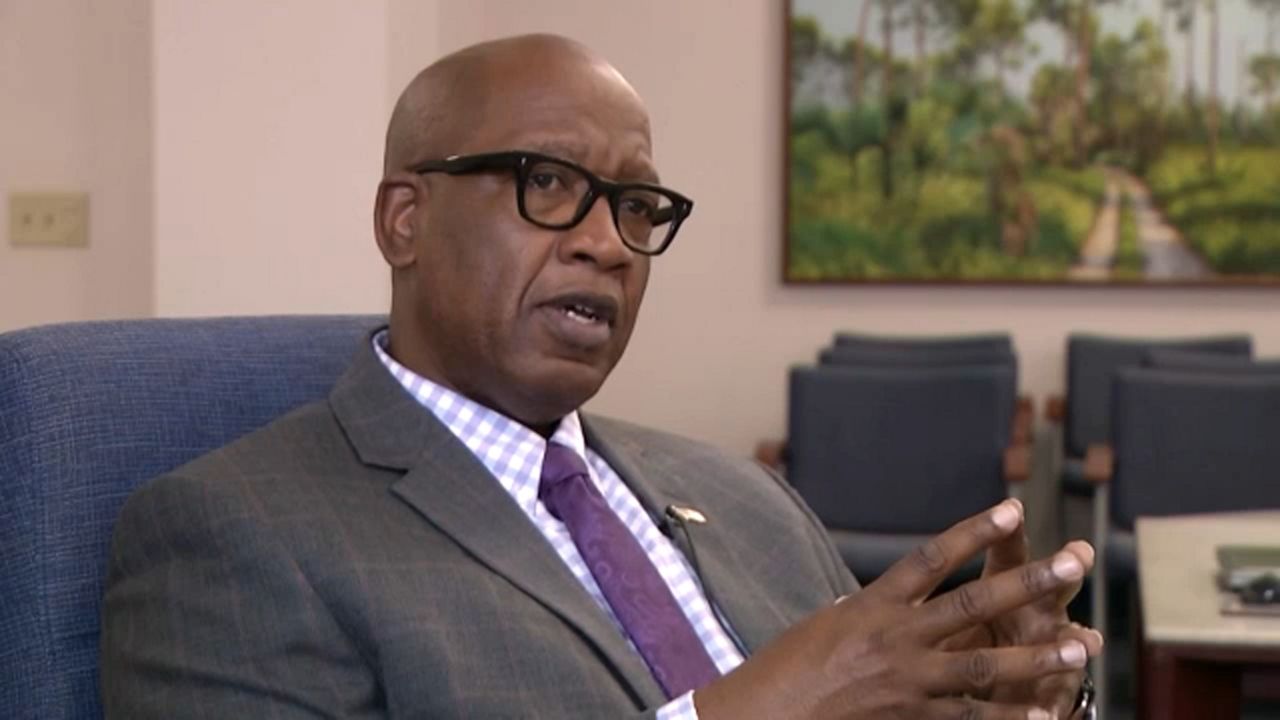Florida Agriculture Commission Nikki Fried announced last month in Sarasota that her office had begun the rulemaking process to begin phasing out the use of polystyrene products (a/k/a Styrofoam) in over 40,000 Florida grocery stores, markets, convenience stores and other regulated businesses.
What You Need To Know
- Agriculture Commissioner Nikki Fried says her office has begun the process of phasing out the use of polystyrene food packaging at over 40,000 grocery stores, markets and convenience stores
- A 2016 state law preempts local governments from regulating local food-related polystyrene containers
- A number of local restaurants in Florida have made the transition already to stop using polystyrene products
“Polystyrene may be convenient, but there is a hidden danger to public health from these disposable consumer products,” Fried said at a press conference on Siesta Key Beach in late September. “Chemicals in polystyrene are not only linked to human and animal health concerns, but because these petroleum-based products take at least 500 years to decompose, their negative effects continue long after they’re thrown away.”
One industry not affected by Fried’s proposal is where arguably polystyrene is used more than anywhere else in Florida – restaurants.
State lawmakers passed a bill in 2016 barring local governments from regulating food-related polystyrene containers. That measure was passed shortly after the city of Coral Gables passed their own law banning the use of expanded polystyrene, which was immediately legally challenged by the Florida Retail Federation. After the case went back and forth in state courts for four years, it ended last year, after the Florida Supreme Court let stand a ruling by the 3rdDistrict Court of Appeal upholding the 2016 state law.
But there are restaurants in Florida who have already phased out the use of polystyrene, such as the Cider Press Café in St. Petersburg.
General manager Nate Bohn said that his staff began transition to post-consumer recycled products to use for take-out orders a couple of years ago. That also includes jettisoning plastic straws in favor of paper straws, as per an ordinance passed by the St. Petersburg City Council.
“When it first started…it was almost near impossible sometimes to find stuff,” he says, referring specifically when the city’s single-use plastic straw ban went from voluntary to mandatory in January of 2020.
“But now it’s almost every producer, every supplier has a line, or carries a bunch of products like that,” he says.
In Tampa today, Fried says that beginning the rulemaking phase on eliminating polystyrene in thousands of stores is simply the first step in the process.
“And showing leadership on these issues, showing that it’s not going to be overly economically burdensome, and that we all need to work together on protecting our environment,” she said. “So once we are successful on this, our goal is to inspire all of the other partners across the state, including our restaurants to follow suit, and to work with us as we really move into more environmentally savvy product lines, having more opportunities for new entrepreneurship on creating these products.”
Spectrum Bay News 9 reached out to the Florida Retail Federation, the organization that successfully stopped the city of Coral Gables from enacting a ban on polystyrene, about what they thought of Fried’s plan.
“Florida’s retailers are working every day to find safe, sustainable alternatives while also ensuring the highest standards of food safety,” said Scott Shalley, president and CEO of the Florida Retail Federation in a statement. “We have a shared vision of sustainability, but we almost must acknowledge the environmental impacts of various alternatives as well as the potential for diminished food quality. We will be following this process closely.”
The Cider Press Café is one more than two dozen of Tampa Bay area restaurants that the Surfrider Foundation is highlighting for serving “responsible food” as part of their Ocean Friendly Restaurants program.
“We go out and we talk to restaurants and show them that there are ways to do this in an economical fashion,” says Nicole de Venoge, the Florida Policy Manager at the Surfrider Foundation.
De Venoge says that it’s crucial for Florida’s environment for the state to phase out Styrofoam.
“It breaks up into microplastics that travel up our food chain,” she says. “So for us as Floridians, as people who are so attached to our coast, it’s just essential to get this out of our ecology and get and move on to something better.”
In addition to banning plastic straws, the St. Pete City Council also passed an ordinance in 2018 that prohibits the use of polystyrene, but only when on city right of way, as part of city contracts and events, according to Sharon Wright, the city’s director of Office of Sustainability and Resiliency. That applies to food service businesses operating on city property such as sidewalk cafes, food trucks, pushcarts and city sponsored and co-sponsored events.
Across the country, six states have or are in the process of enacting laws banning the use of polystyrene.









